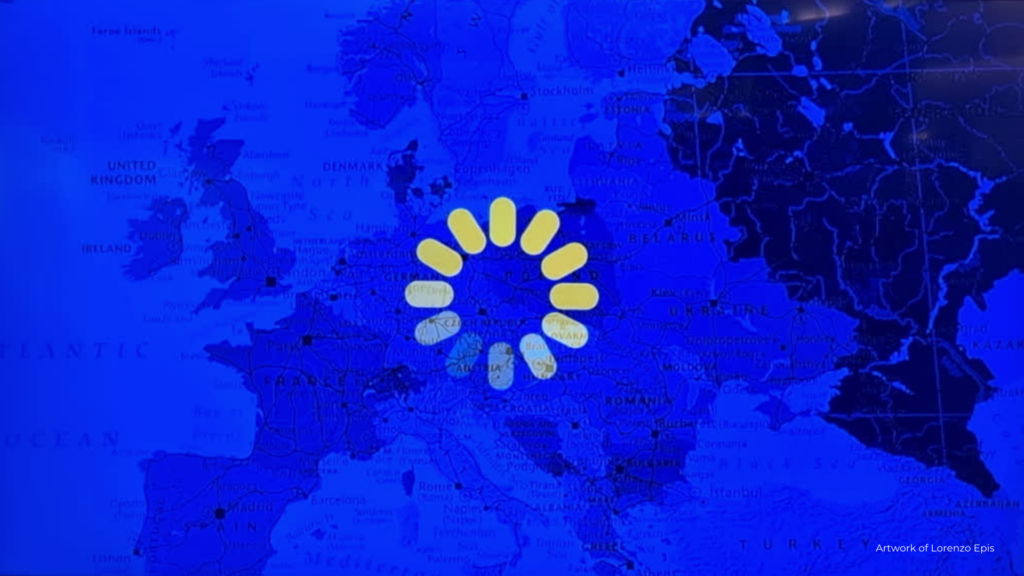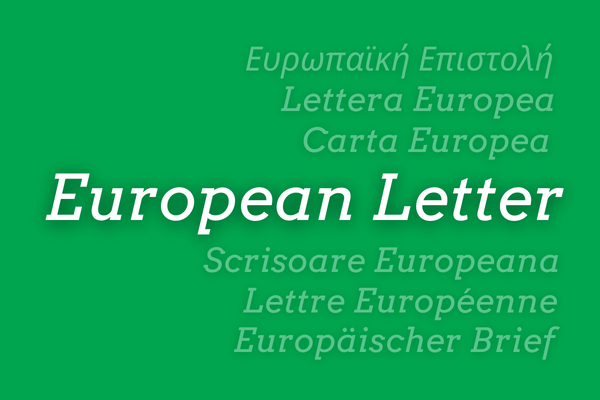EL77 | Only a sovereign Europe can protect its citizens and its member states in the new phase of instability and global competition
ITALIAN | FRENCH | GERMAN | SPANISH | ROMANIAN | GREEK
This European Letter has sent to the MPs and MEPs of the following Parliaments: European Parliament, Italian, French, German, Austrian, Spanish, Belgian, Netherland, Greek and Romanian Parliaments.
On November 22nd, the European Parliament initiated the procedure for changing the EU Treaties. It is now up to the European Council to convene a Convention to discuss in detail the reform project of the European Union.
The governments of the member states have a great responsibility: it is their role in the European Council of March to support the Treaty revision process formally opened by the European Parliament on November 22nd. This is necessary to provide the European Union with the indispensable tools to overcome the chronic weaknesses that now jeopardize its stability and well-being in the new phase of global competition and conflict.
It is undeniable that Europe has been experiencing a series of continuous crises for over a decade: from the risk of the implosion of the monetary union to the migration emergency, from the outbreak of the pandemic to the illiberal drift of some member states. Each of these crises has tested the Union. When it remained united, the responses were effective, such as the joint purchase of vaccines and the creation of the recovery fund to finance national recovery and resilience plans. However, when governments chose to act independently, such as in managing asylum seekers or rescuing the banking system after the collapse of Lehman Brothers, problems remained unresolved, and the difficulties of some countries ended up affecting everyone else. The fundamental problem is that the Union is weak whenever it lacks effective tools to react, either because it is entirely devoid of them or because activating them requires unanimity among governments. On the contrary, Europe counts and is strong when it is given the competencies and resources to act autonomously in the interest of its citizens and member states.

Unfortunately, being weak has a price, and in the case of Europe, this price becomes increasingly unsustainable every day. Faced with the proliferation of internal and external emergencies, the inability to take effective measures in foreign, industrial, environmental, and social policies inevitably results in a loss of security, competitiveness, and well-being for our societies. This situation favors the interests of external powers to Europe, starting with the autocracies of Russia and China, as well as their allies among populist and extremist political forces within the Union.
Unfortunately, being weak has a price, and in the case of Europe, this price becomes increasingly unsustainable every day.
Where Europe lacks the tools to act, the efforts of member states to go it alone have proven mostly short-sighted and unrealistic. Consider the inability of individual governments to intervene effectively in stabilizing Libya or the Sahel, or the inadequacy of military support to the Ukrainian resistance, or the incapacity of states to provide adequate financial support for the green transition of the European economy without losing global competition with the USA and China or fragmenting the single market.
New and much more serious dangers loom on the horizon. What would Europeans do if Russia decided to invade a Baltic republic shortly after Donald Trump, once again President, essentially decided to dismantle NATO? What would happen to the European industry if the transition and digitization project were blocked by protests from workers and businesses unable to bear the financial and social costs of such transformations, while the US and Chinese governments allocate billions for the modernization and relaunch of their national productions in the global market?
In the face of these and many other challenges, it is necessary to react by placing the European Union in a position to provide adequate answers to the needs of its citizens in all those areas where member states can no longer be effective. The self-determination of Europe - one could say its "coming of adult age" - necessarily involves a reform of its legal and institutional framework, taking into account at least three priorities: it is necessary to strengthen the decision-making capacity of the Council by ending individual veto rights; the European Parliament and national parliaments must have more say to improve the democracy of decision-making processes; the Union must develop effective policies by acquiring resources and competencies in areas such as foreign and defense policy, social cohesion and the environment, industrial policy, and health.

To move in this direction, it is not necessary to start from scratch: on November 22nd, the European Parliament formally activated the Treaty review procedure based on the results of the Conference on the Future of Europe, which involved hundreds of thousands of people in a transnational debate on the priorities that the Union is called upon to address, between May 2021 and May 2022. What emerged clearly from this experiment in participatory democracy is that citizens in all member states want a Europe capable of acting and taking care of many more problems than it does now. To meet these ambitions, the European Parliament has advocated for a Treaty reform that includes greater efficiency and democracy in the institutional balance, an extension of the Union's powers in some strategic areas, and the creation of more effective tools to protect and promote European values within member states.
It is now up to the European Council to authorize the convening of a Convention that will be tasked with working on the text of the reform project. It is essential that all political forces within the European Parliament and national parliaments engage governments and the European Commission to support this Treaty reform process in the direction of a more sovereign and democratic Europe.

The European Letter is published in 7 languages under the auspices of the Luciano Bolis European Foundation in cooperation with the Union of European Federalists, with the CERV Grant 2023-Project 101140644 programme.
